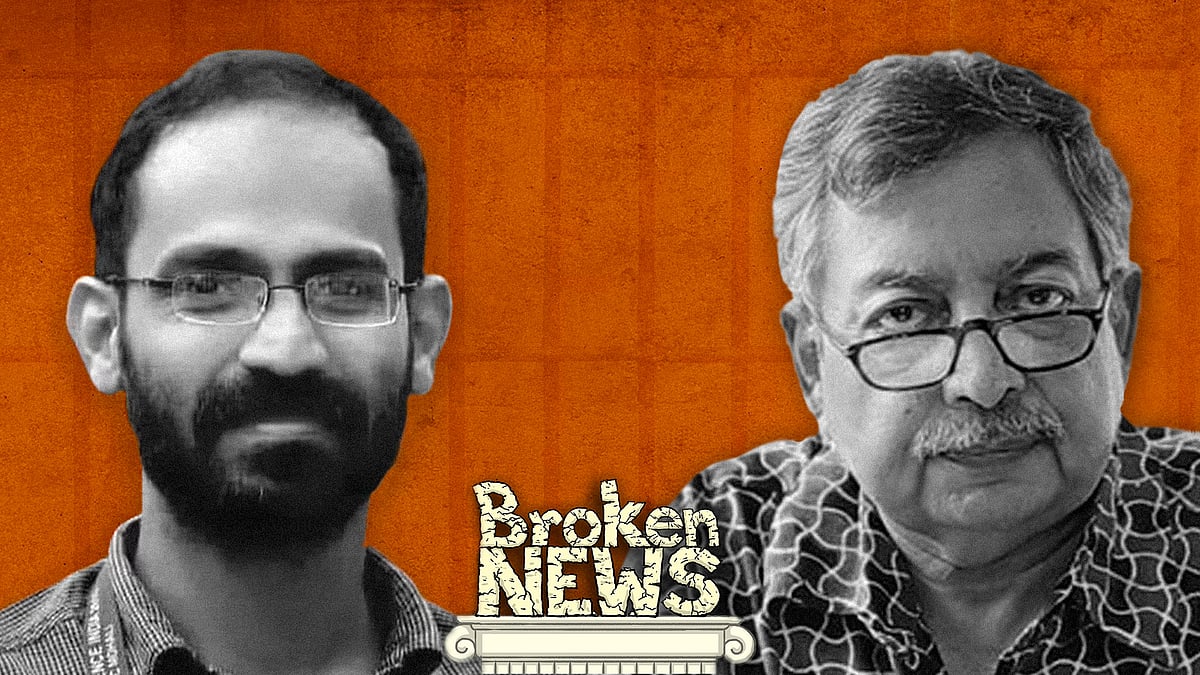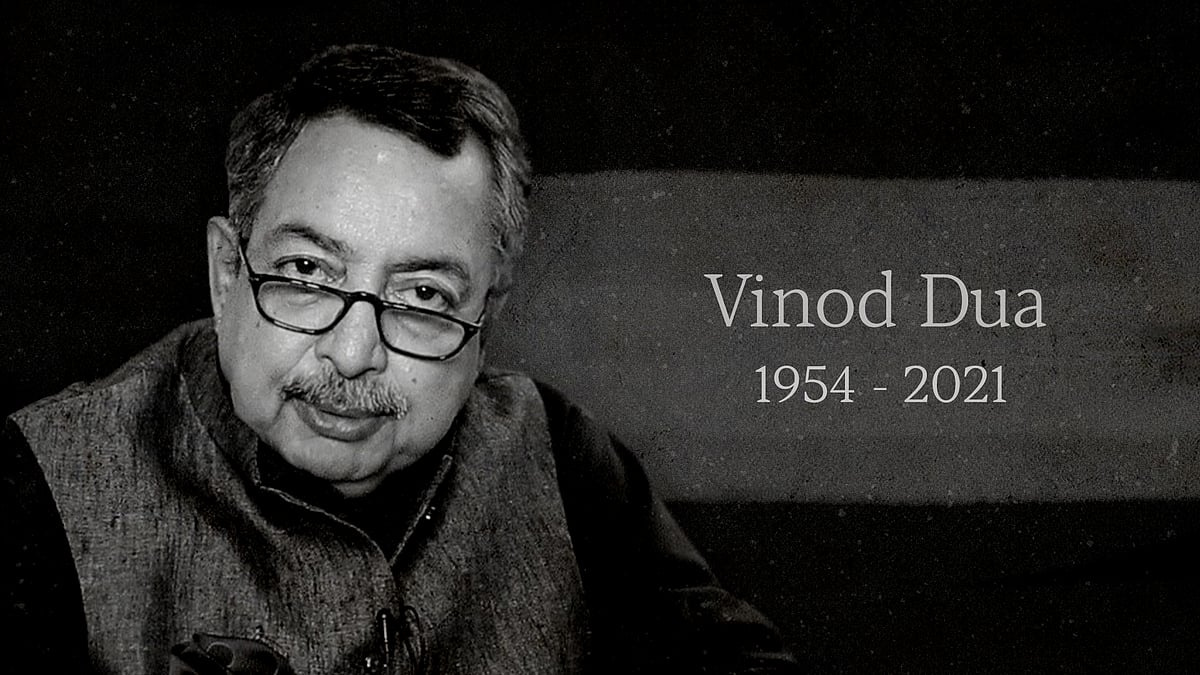In Vinod Dua’s death, a warrior is lost when Indian journalism needs many
Courage was his hallmark from the start. He enjoyed life, fought the fight and won.
If you want to understand Vinod Dua, sample the last two social media posts by his daughter Mallika Dua. Seemingly unfazed while informing the world of her father’s declining health, she spoke of the glorious life her father lived, and the dignified end he would meet. With that tribute, she also mentioned that it was her father who gave her such spirit.
Those who know Dua well are aware that Mallika spoke the truth. Whatever else he may be, he was, most importantly, an absolutely fearless and brave individual and journalist. A warrior has been lost when the need for fearless journalists in Indian journalism is dire. That is the true loss.
Courage was Dua’s hallmark from the start. His programme in the 80s, called Janvani, was known for the same fearlessness and cemented his image in similar mould. It was nearly impossible to ask tough questions of politicians and ministers in a completely government-controlled Doordarshan, but Dua did it back then. And he did it in a way that the politicians had to pay for it. Incumbent Rajasthan CM Ashok Gehlot was a young minister when he appeared on Dua’s programme, and it is said that because of what transpired on a show, he was sidelined by Rajiv Gandhi in such a way that it took him years to make a comeback.
But Dua didn’t consider himself a journalist in private conversations. He used to say he is a broadcaster. Maybe he used to say it in passing, but behind it, there was always a sense that his core was different﹘closer to literature, art and culture. Years later, he exemplified it through the programme Parakh.
His next big break came with the election-related discussions he held with Prannoy Roy on Doordarshan. They left youngsters like us enthralled with their effortless conversations in Hindi and English. A phrase he coined during those TV discussions remains etched in the lexicon of Hindi journalism to this day.
But more than politics, he loved music, theatre and culture. He used to sing extremely well; his mehfil unparalleled. There was a time when he was associated with theatre too and many directors were his close acquaintances. That’s how he knew many film celebrities with a theatre background.
My fondness for him grew because of these interests too. Despite an engagement with news cycles for decades, I still like to wander in the worlds of literature and culture. This led to frequent conversations, and disagreements between us, but we continued to share.
A time when TV journalism is inching towards illiteracy, when words are losing their meaning, Dua’s grip on the language could have been a treasure trove for any journalist; his choice of words, pronunciation set his show apart.
We used to talk about the forms of words too. We agreed, and disagreed. We were on the same page on identifying communalism as a danger but I differed with him on his views on Pakistan and China. He disagreed with my position on the military; he was clearly a bigger patriot than me.
However, it is interesting that words by the same patriotic journalist were unpalatable for so-called “nationalists”, who are trying to blend together communalism with nationalism into a power concoction to win elections. Dua also had to face legal cases for his fearless comments against them. When I called him at the time, his morale was high, and he asserted that he would not bend but rather fight it out in court. He fought the fight, and won.
Despite his fame, he never appeared too ambitious. He enjoyed life, never seen as too busy even when others expected him to be. He burst out laughing when I recited a couplet by Ghalib as a joke (which I heard from the late poet Pankaj Singh): Dia hai khalq ko bhi kuch ki waan nazar na lage, bana hai aish Tajammul Husain Khan ke liye (God has bestowed riches on the world to protect him from envy. Otherwise, all wealth was meant for Tajammul Husain Khan). Dua was a carefree man.
After he left NDTV, our meetings were fewer but our conversations continued. “You are my dictionary,” he used to jokingly say when he called to check the context of any word or line from a poem or composition.
His death is a personal loss; a man who trusted my words is no more. But it is a huge public loss in an era when the media is increasingly dependent on power, when it is wary of asking the tough questions.
 Why, despite SC’s Vinod Dua ruling, dissenting journalists won’t be safe
Why, despite SC’s Vinod Dua ruling, dissenting journalists won’t be safeMic Drop
A weekly capsule of our podcasts, part of some of India's most-followed podcasts on media, politics, pop culture, food and more.
